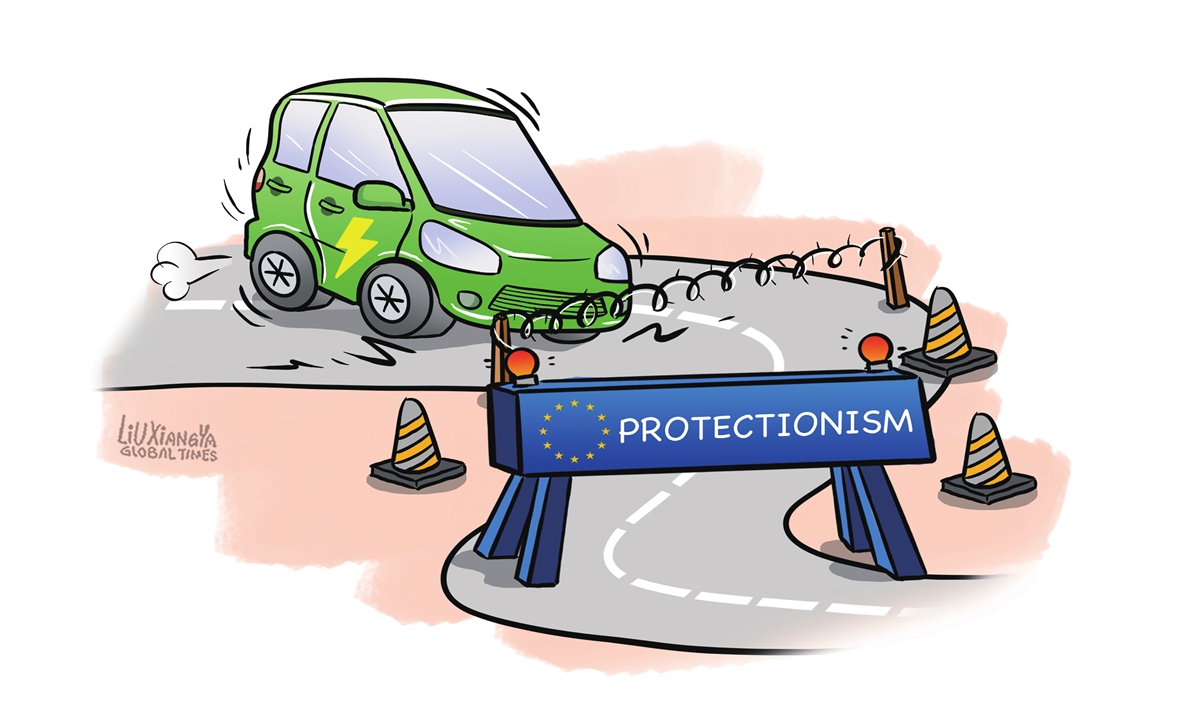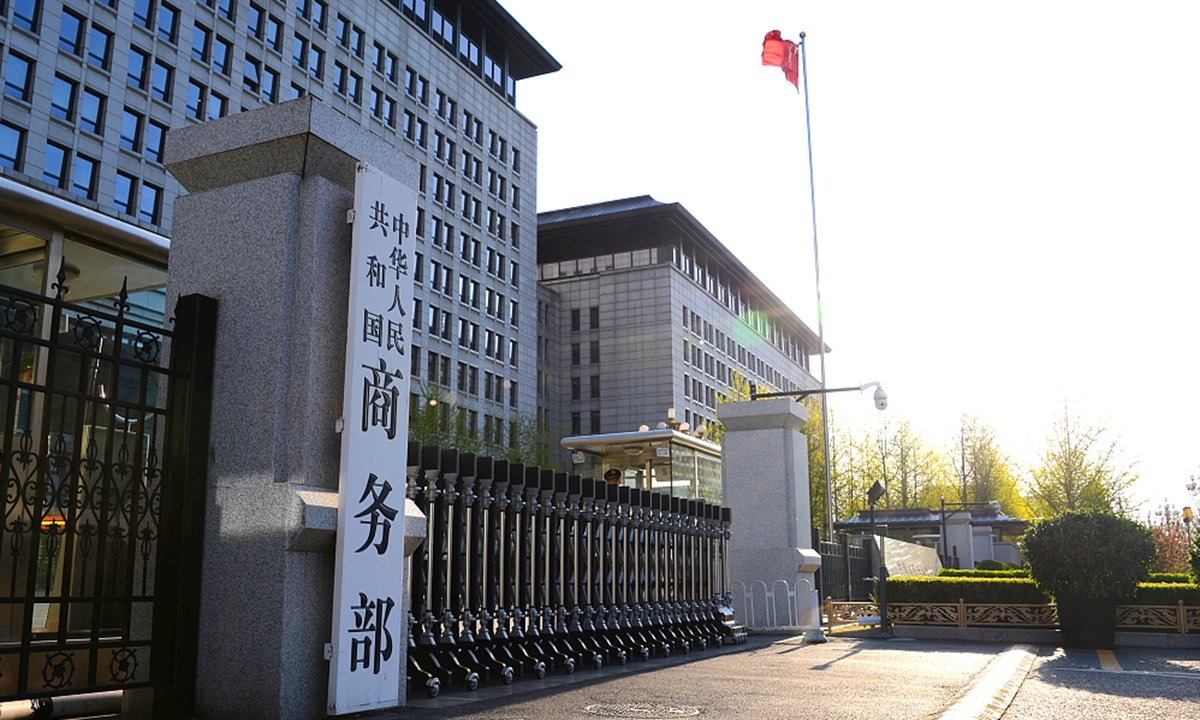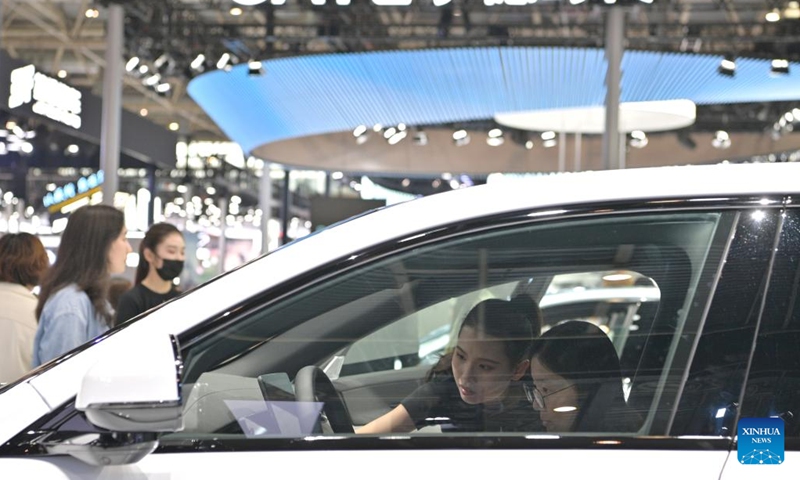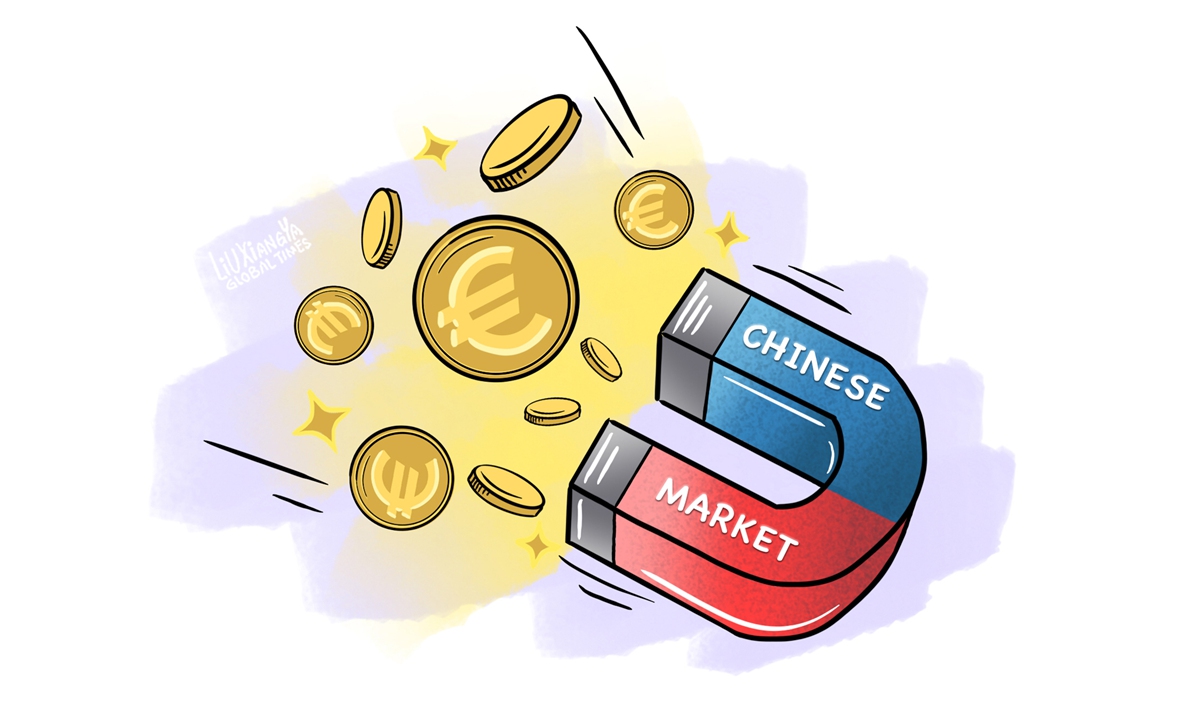
Illustration: Liu Xiangya/GT
European manufacturers of hydrogen equipment have urged the EU to step in to help the industry compete with "cheaper Chinese producers," Reuters reported, citing a letter seen by its reporters. We hope the EU can restrain the rise of trade protectionism within itself, as it does nothing but harm free trade and open a dangerous floodgate.European manufacturers want Brussels to do more to ensure Europe-made equipment powers the EU's plan by 2030 to produce 10 million tonnes of renewable hydrogen using electrolyzers, machines that use electricity to split water to produce the green fuel. It is worth considering why some European manufacturers are urging Brussels to intervene in normal business competition. A possible explanation could be the lack of competitiveness of equipment made in Europe.
In recent years, the production and use of renewable hydrogen have been seen as a promising option for decarbonizing the EU industry, particularly for hard-to-decarbonize energy-intensive industry sectors. Transforming the EU's energy system to a hydrogen economy is believed to bring benefits in terms of job creation and economic growth. However, if Europe's transition to a hydrogen economy is hijacked by the interests of individual electrolyzers companies, it would be a cause for concern.
While Europe currently buys few electrolyzers from China, manufacturers are warning that imports are poised to grow as the nascent sector ramps up, the Financial Times said. The reason is simple: China is able to produce electrolyzers at a much lower cost than the EU. The competitiveness of made-in-China electrolyzers stems from China's advantages in efficient production, high labor productivity, complete supply chains and continuous technological innovation.
Chinese companies have never been afraid of competition, but competition should be fair and rules-based. Amid an atmosphere of trade protectionism, if Brussels steps into normal business competition and does more to protect local electrolyzers companies from external competition, the disadvantages of trade protectionist measures will far outweigh its advantages.
It should be noted that electrolyzers are only a part of the renewable hydrogen supply chain and have limited output. It is unnecessary for the EU to protect a certain industry at the expense of the entire hydrogen economy supply chain. In particular, the distribution of electrolyzer production capacity among EU countries is uneven, which is unfair for EU countries with weak electrolyzers production capacity.
Because of an uneven distribution of interests, EU members are likely to become increasingly divided in their attitudes toward a clean-energy trade row with China, making it very costly for the EU.
Brussels recently announced tariffs on imported Chinese electric cars and is investigating so-called "Chinese subsidies" for wind and solar suppliers. But trade protectionism will never be the right approach to improving the competitiveness of EU companies, and will only cause distractions for companies, forcing them to waste time and resources on supply chain diversification.
China and the EU share extensive common interests and broad space for cooperation in green transformation. In 2023, China was the third-largest partner for EU exports of goods. China is an important overseas market for some European companies. At the same time, many made-in-EU products are popular in the Chinese domestic market. However, China has not taken any protectionist measures to restrict imports from Europe or crack down on EU companies.
The depth and breadth of contemporary cooperation between the clean energy supply chains in China and the EU go beyond what some Westerners can imagine. China will continue to cooperate with Western companies and welcome them to share China's development opportunities. We hope Brussels can also adopt a cooperative attitude and promote mutually beneficial cooperation between China and Europe.
The author is a reporter with the Global Times. bizopinion@globaltimes.com.cn



